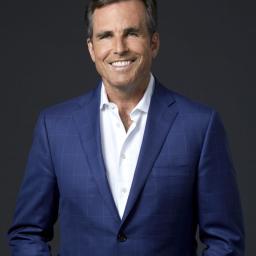Started in 1950 by the World Health Organization (WHO), World Health Day is celebrated annually on April 7th to raise awareness about global health issues and advocate for equitable healthcare. As we shed light on the importance of health and well-being, it’s important to highlight brain health, and the rights of individuals with neurological conditions and disabilities.
Why Brain Health Matters
The brain is the powerhouse of the human body. It controls everything humans do, from breathing and moving, to memorizing and decision-making. According to the World Health Organization (WHO) 1 in 3 people are affected by neurological conditions, making it the leading cause of illness and disability throughout the world. The WHO states that “stroke, neonatal brain injury, migraine, dementia, nerve damage, meningitis, epilepsy, neurological complications from preterm birth, autism spectrum disorder, and nervous system cancers” are the top 10 neurological conditions that impact people throughout the world.
Brain-based differences affect how individuals learn, communicate, and interact with the world, often leading to challenges in education, employment, and daily life. But with the right support, individuals with neurological conditions can thrive in their communities.
Challenges in Neurodisability Healthcare
Though the number of deaths associated with neurological conditions has steadily decreased since 1990, there are many significant barriers to healthcare people with disabilities face on a daily basis.
Delayed diagnoses—Many neurological disorders go undetected or are misdiagnosed, which leads to a delay in the proper treatment.
Limited access–Not having access to doctors, specialists, neurologists, or assistive technology can make treatment difficult to obtain. Transportation barriers may contribute to limited access.
Stigma and misunderstanding—Neurological disorders may be considered an invisible difference, leading to misconceptions, discrimination, and lack of societal support.
Financial burden—The cost of medications, therapies, assistive devices, and specialized education can prevent individuals from getting the proper treatment.
Support Neuro-Inclusive Health on World Health Day
Educate Yourself–Learn about neurological disorders to help break down stigma and break the cycle.
Support Disability Rights Organizations—Many nonprofits work to advocate for neurodiverse individuals, improve access to care, and provide services that individuals may not otherwise have received.
Advocate for Policy Change—Sign petitions and support the change for laws that expand disability rights, research funding, and healthcare access for individuals with differences.
Use Social Media – Share proper information from credible sources to spread awareness and encourage discussions about brain health and disability inclusion.
On World Health Day, let’s commit to advocating for individuals with neurological disabilities. Health is far more than just an awareness of physical well-being; it encompasses a comprehensive understanding of mental and neurological health, as well as a commitment to ensuring accessibility and inclusion for everyone. As we mark this global day of awareness, let us commit to creating a society where every individual, regardless of their neurological condition, can access the care, respect, and opportunities they deserve.




